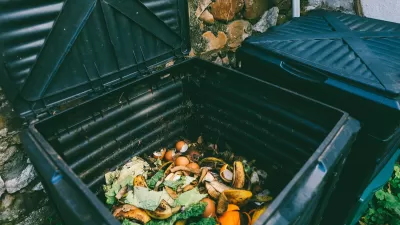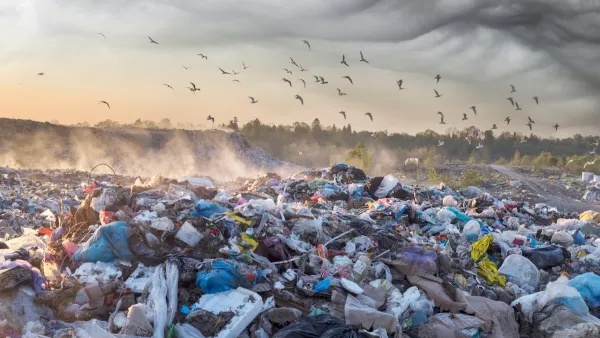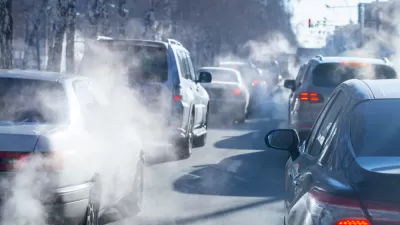A new study from the U.N. Food and Agriculture Organization found that the 1.3 billion tons of food wasted every year make it one of the largest sources of greenhouse gas emissions.
Reducing food waste can have myriad social, economic, and environmental benefits. But a new report has put a number to the impact on global warming that uneaten food has every year. "The world throws away one-third of food produced yearly, making food waste the third-largest source of greenhouse gas emissions behind those produced by the U.S. and China, according to a U.N. report released Wednesday," writes Ricardo Lopez. "[T]he U.N. estimated the carbon footprint of the problem is equivalent to 3.3 billion tons of carbon dioxide every year."
"All of us -- farmers and fishers, food processors and supermarkets, local and national governments, individual consumers -- must make changes at every link of the human food chain to prevent food wastage from happening in the first place, and re-use or recycle it when we can't," said FAO Director-General José Graziano da Silva.
FULL STORY: One-third of food wasted worldwide harms environment, U.N. says

Planetizen Federal Action Tracker
A weekly monitor of how Trump’s orders and actions are impacting planners and planning in America.

Maui's Vacation Rental Debate Turns Ugly
Verbal attacks, misinformation campaigns and fistfights plague a high-stakes debate to convert thousands of vacation rentals into long-term housing.

San Francisco Suspends Traffic Calming Amidst Record Deaths
Citing “a challenging fiscal landscape,” the city will cease the program on the heels of 42 traffic deaths, including 24 pedestrians.

Amtrak Rolls Out New Orleans to Alabama “Mardi Gras” Train
The new service will operate morning and evening departures between Mobile and New Orleans.

The Subversive Car-Free Guide to Trump's Great American Road Trip
Car-free ways to access Chicagoland’s best tourist attractions.

San Antonio and Austin are Fusing Into one Massive Megaregion
The region spanning the two central Texas cities is growing fast, posing challenges for local infrastructure and water supplies.
Urban Design for Planners 1: Software Tools
This six-course series explores essential urban design concepts using open source software and equips planners with the tools they need to participate fully in the urban design process.
Planning for Universal Design
Learn the tools for implementing Universal Design in planning regulations.
Heyer Gruel & Associates PA
JM Goldson LLC
Custer County Colorado
City of Camden Redevelopment Agency
City of Astoria
Transportation Research & Education Center (TREC) at Portland State University
Jefferson Parish Government
Camden Redevelopment Agency
City of Claremont





























